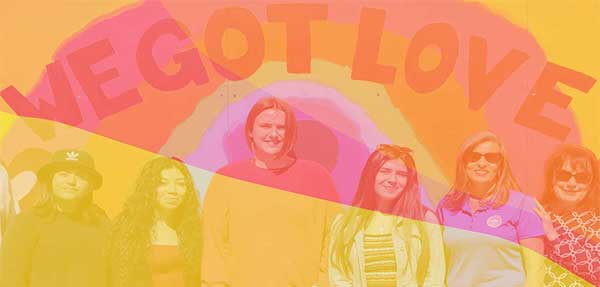Calling all puppy raisers.
Guide Dogs of the Desert, one of the most intrepid and valued nonprofits in the Valley, is encouraging locals interested in making a difference to consider applying to be a puppy raiser.
“It’s a very important role,” said Robert Maher, Executive Director of Guide Dogs of the Desert. “Puppy raisers are vital. They help us meet the demand of the number of visually impaired students on a waiting list to receive a guide dog from us.” 
The nonprofit goes through an intricate dog/human matching process, in fact, which can be lengthy.
“We want to make sure we’re finding the right dog for the person,” Maher said. “Somebody who applied last month may be able to receive a dog by the end of the year because we found the perfect dog, while somebody who applied a year ago or two years ago may still be waiting because we haven’t found the dog that is the best match for them..
“We have enough individuals that could be on a three-year waiting list,” he added. “To address the waiting list we need puppies. So, the big thing is always puppy raisers.”
Recent grants from Inland Empire Community Foundation (IECF) will assist on a number of fronts, particularly for the nonprofit’s general needs. However, the funding will expand opportunities to focus on key initiatives like the dog/human matching process.
“We’re looking to have 75 puppies this year, meaning we need 75 puppy raisers,” Maher said. “The people who were puppy raisers last year are still working with their puppy—they care for the dog about 18 to 24 months. It can be a constant challenge to be able to find enough people willing to take this on.”
Maher added that in any given year, the nonprofit aims to meet several key goals.
“We shoot for about 20 teams (student and dog), as they’re referred to. We have three to four classes a year each with six students who come to our campus for 28 days to learn how to care for and work the dog.”
Some people have had dogs before, of course. Others have never owned a dog.
“We’re here so those people can learn how to work with that dog,” Maher said. “People who have had dogs before, just like any of us. When you get into a new car, every car drives differently, so every dog is going to be different. You may have had a dog for the past 10 years and suddenly, you’re being given a new dog, and you now have to learn how to work that dog.”
“We work with all people with all abilities,” Maher said. “We’ve had deaf students, and we’re able to teach the dog commands through sign language. We’ve had older people, too.”
Maher went on to share a story about a woman who applied for a guide dog several years ago.
“She was 86 at the time when she applied, but she had a very active lifestyle,” he said. “She played golf every day, and we actually taught that dog how to ride on the golf cart. Of course, I always wondered who was driving the golf cart. Was it her or the dog? Because she didn’t have the sight, but the dog knew how to ride with her.”
Guide Dogs of the Desert is more than 90 percent privately funded.
“We have one local county grant,” he said. “We really rely on our community to help support us. The IECF grant helps us make a tremendous impact on the work we do.”
Learn more at guidedogsofthedesert.org
This story originally appeared in the Desert Sun, September 2025.
Stay up to date on all the good work we’re doing through the power of philanthropy. Sign up for our eNewsletter, Philanthropy Matters, today.


